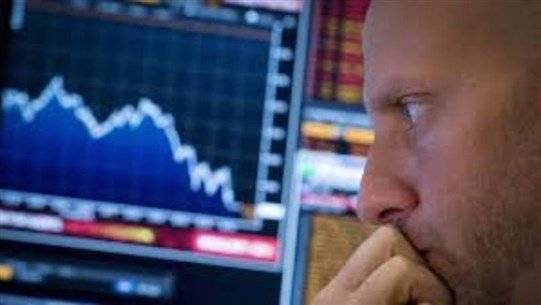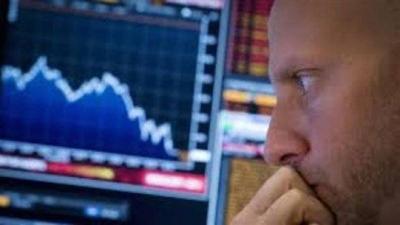Investors around the world are preparing for further chaos in the markets following a tumultuous week marked by volatility that impacted asset prices, amid central banks and governments escalating their battle against inflation. Indicators of tough times are emerging everywhere. The Federal Reserve increased interest rates by 75 basis points for the third consecutive time, while Japan intervened to support the yen for the first time since 1998. The British pound fell to its lowest level against the dollar in 37 years after the new British finance minister announced historic tax cuts and huge increases in borrowing.
Mike Kelly, an asset expert at PineBridge Investments (USA), stated, "It's hard to know what will happen and where and when... Previously, the thinking was that the recession would be short and mild. Now, we have set that aside, and our thinking focuses on the unintended consequences of more aggressive monetary policies."
Stocks have plummeted everywhere. The Dow Jones, S&P 500, and Nasdaq indexes have all declined in a bear market, while bonds have reached their lowest levels in years as investors rebalance their portfolios amid persistent inflation and rising interest rates. On top of this, the U.S. dollar soared to a 20-year high against a basket of currencies, driven by factors including investors seeking safe havens amidst sharp market fluctuations.
David Kotok, chairman and chief investment officer at Cumberland Advisors, remarked that "currency exchange rates... have become sharply volatile... When governments and central banks focus on determining interest rates, they transfer volatility to currency markets." Currently, selling across various asset classes is attracting few bargain hunters. Many believe that conditions will worsen due to tighter monetary policies worldwide increasing the likelihood of a global recession.
Ross Quigley, overseer of BlackRock's Global Allocation Fund, the world's largest asset manager, stated, "We will remain cautious," noting that he is wary about bonds. He added, "I believe there is a lot of uncertainty about the speed at which inflation will decline, and much uncertainty about whether the Fed will continue an aggressive tightening campaign as indicated recently."
The fallout from the tumultuous week has exacerbated trends in stocks and bonds that have persisted throughout the year, leading to declines in both asset classes. However, the ambiguity of forecasts means they remain not cheap enough for some investors. Jake Jolly, chief investment analyst at BNY Mellon, who has been increasing allocations to short-term sovereign bonds, said, "We believe it is not yet time to bet on rising stocks until we see signs that the market has bottomed." He added, "The market is getting closer to pricing in this widely expected recession, but that has not fully occurred yet."
Bond yields, which move inversely to prices, have risen worldwide. The yield on the benchmark U.S. ten-year Treasury reached its highest level in over 12 years, while the yield of German two-year bonds rose above 2% for the first time since late 2008. In the UK, five-year Treasury yields jumped by 50 basis points, marking the largest single-day increase since at least late 1991, according to Refinitiv data. Matthew Nest, an expert at State Street Global Advisors, who believes that bond yields have risen to a level that makes them look "extremely attractive," stated, "At some point, fears of inflation will turn into growth concerns."
Investors fear that conditions will worsen before they improve. Mike Riddell, a fixed-income portfolio manager at Allianz Global Investors in London, commented, "The question now is not whether we will enter a recession, but how deep this recession will be and how likely it is that we will face some sort of financial crisis and massive global liquidity shock." Given that monetary policy tends to be slow to react, Riddell's estimate is that a return to tightened central bank policies means that the global economy will be weaker by mid-next year. He said, "We see that the markets are still significantly underestimating the size of the next blow to global economic growth."




